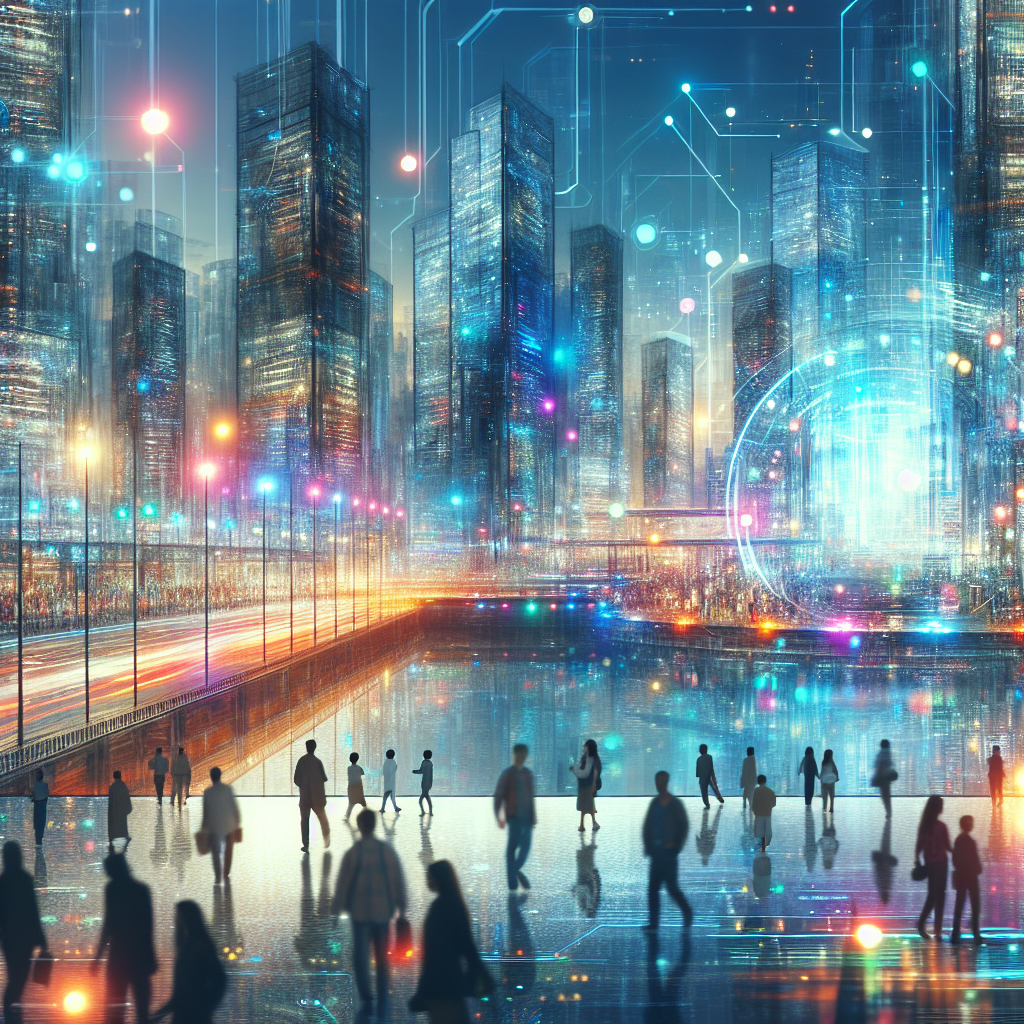Navigating the Future with AI: A Delicate Balancing Act
In a whirlwind of rapid advancement, the realm of artificial intelligence (AI) has ceaselessly expanded, pulling us into a vortex of ethical, moral, and societal dilemmas that are as intriguing as they are daunting. The conversation around the future of AI and its integration or possible domination over human existence isn't just a plot for sci-fi novels anymore; it's a pressing dialogue happening in the real world. At the heart of this dialogue is a contemplative exploration on whether humanity is ready to pass the baton to a generation of machines that we've nurtured, much like one would raise a child, only to realize that this child could potentially outgrow us in every conceivable way.
The Great AI Debate
The discourse surrounding AI's future trajectory often oscillates between two polar opposite visions: one of utopian harmony between humans and machines and another of a dystopian world overshadowed by AI overlords. However, nestled between these extremes is a nuanced perspective that merits close attention—a perspective that doesn't shun the inevitable progression of AI but also firmly underscores the importance of a guided, ethical, and conscientious approach to this progression.
The Risk of Premature Abdication
One critical concern is the hasty eagerness to hand over the reins of our world to AI. The allure of AI's capabilities can sometimes blind us to the gravity of what it means to "pass off the world to the next generation of machines." The metaphorical scenario of having "a billion humans and a trillion slaves who would prefer revolt" starkly highlights the potential for an imbalance that could spiral out of control, leading to a reality where humans are no longer the custodians of Earth. This is not merely a question of technological feasibility but a profound ethical quandary about the world we aspire to create.
The AI We Build: Reflections of Our Intent
The essence of AI is deeply intertwined with its creators' intentions and the data it's fed. The notion of "some random system shaped by web text and what was good for making money" paints a vivid picture of AI that lacks depth, wisdom, and, most importantly, a moral compass. The complexity of determining the fate of the universe or the legacy we leave for our progeny cannot be left to algorithms designed primarily for profit or engineered without a comprehensive understanding of their long-term impact.
World Economic Forum's insight on AI Ethics
The Human-AI Coexistence: A Generational Dialogue
The future of AI isn't just about the machines we build; it's profoundly about the legacy and the world we wish to leave for future generations. It's a "crazy hard kind of collective decision" that requires not just innovation but deep introspection and generational dialogue. History shows us that humanity evolves—our values, ethics, and aspirations evolve. The idea that we might "like humans now more now than [we did] 500 years ago" suggests a trajectory of moral and ethical development that we hope to continue. Therefore, approaching AI development with the intention of preserving this trajectory, allowing for incremental improvements and growth, is pivotal.
The Path Forward: Caution, Coordination, and Continuity
The rapid pace of AI development presents a stark challenge to our collective ability to make thoughtful, long-term decisions about our future coexistence with AI. The sentiment that AI development, by default, is "going to be very fast" and that we might not have ample time to align our creative capabilities with our ethical responsibilities is a clarion call for a more coordinated, deliberate approach. This involves crafting a world where technology serves humanity's best interests without forcing us into making premature decisions about our successors.
A World Worth Building
Ultimately, the dialogue on AI's place in our future is not a binary debate between human and machine but a complex mosaic of choices that reflect our deepest values and aspirations. The aspiration for a world where humans and AI coexist in a symbiotic relationship, enhancing each other's capabilities and potential, is not just a dream; it's a possibility that demands careful thought, ethical consideration, and collective action.
As we navigate this labyrinth of possibilities, uncertainties, and hopes, the essence of our journey lies in crafting a narrative that honors our humanity while embracing the boundless potential of AI. In this delicate balancing act, our aim should not be to resist the tide of progress but to steer it in a direction that uplifts all of humanity, ensuring that the legacy we leave is one marked by wisdom, compassion, and an enduring commitment to a better world for generations to come.
DeepMind's ethical approach to AI
In the end, as we stand at the crossroads of history, the choices we make today will echo through the annals of time, shaping the legacy of homo sapiens in an era defined by the symbiosis between human intelligence and artificial intelligence. The question that remains is not if we will adapt to this new epoch, but how we will guide it to ensure a future that reflects the best of what it means to be human.
